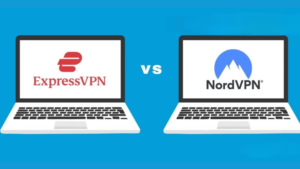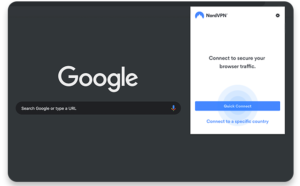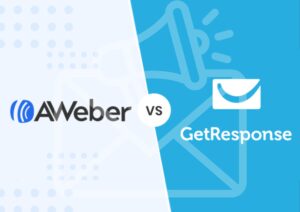
Chances are, like 80% of people, you turned to Google the last time you needed to search for something online. Google’s suite of apps and services has made it an indispensable tool for many. However, with each interaction, your digital footprint grows, relinquishing more control of your online activities than ever before. Thankfully, you can reclaim your privacy by switching from Google’s ubiquitous search engine to a genuinely private alternative. There are numerous options available, each offering secure browsing without sacrificing the quality of your search results.
Why Should You Choose a Private Search Engine?
Major search engines like Google, Yahoo, and Bing are incredibly efficient at what they do – but there’s a catch. They collect vast amounts of data about you: your IP address, user agent, a unique identifier stored in browser cookies, and of course, your search terms. This data helps these companies create detailed profiles of your browsing habits, preferences, and interests. While this may seem harmless, it enables them to tailor advertisements directly to you, and even track your online activity across multiple websites.
In light of stricter regulations such as the EU GDPR, which recognizes metadata and IP addresses as personally identifiable information, these companies are required to either provide users with the option to opt out of data collection or be transparent about how they collect and use data.
However, uncovering and managing the data these search engines collect about you can be a daunting task. Even if you manage to locate and attempt to delete your data, there’s no guarantee it’s completely erased. This lack of control over your personal information can leave you feeling vulnerable and exposed.

This is where private search engines come in. Here’s why you should consider using them:
- Protect Your Privacy: Private search engines, such as DuckDuckGo and Startpage, prioritize user privacy by not tracking or storing your search history, IP address, or any personally identifiable information. This means you can browse the web without leaving a digital footprint behind, ensuring your online activities remain private.
- Avoid Targeted Advertising: By using a private search engine, you can minimize the amount of personalized ads you encounter while browsing the web. Since your search history isn’t tracked, advertisers are unable to target you based on your interests or browsing habits, resulting in a less intrusive online experience.
- Maintain Anonymity: Private search engines do not collect or share your personal information with third parties, preserving your anonymity online. Whether you’re conducting research, shopping online, or simply browsing the web, you can do so without the fear of your data being used without your consent.
- Transparency and Control: Unlike traditional search engines, private search engines are transparent about their data collection practices and prioritize user control. You can rest assured knowing that your data isn’t being exploited for targeted advertising or other purposes without your knowledge or consent.
Exploring the Best Private Search Engines for Enhanced Privacy Online
Popular search engines have become ubiquitous in our daily lives, but their reliance on tracking user data raises concerns about privacy. Fortunately, there are alternative search engines that prioritize user privacy while still delivering quality search results. Here’s our updated list of the top 11 private search engines renowned for their commitment to privacy and security:
- Startpage
- DuckDuckGo
- Qwant
- Searx
- SearchEncrypt
- Gibiru
- Ecosia
- Swisscows
- Mojeek
- MetaGer
- Disconnect Search
1. Startpage
Startpage stands out as a top alternative to Google, offering high-quality search results while maintaining a strict policy of not collecting any personal data or IP addresses. Users can enjoy relevant search results without compromising their privacy or location. Notably, Startpage’s Anonymous View mode acts as a protective shield, preventing websites from tracking users, enhancing privacy further.
2. DuckDuckGo
DuckDuckGo is renowned for its commitment to privacy, serving millions of searches daily without tracking users or collecting personal data. While it offers search results comparable to major search engines like Google, its extra features, such as the !bang search functionality and browser extension, provide added convenience and privacy protection. However, recent revelations about data sharing with Microsoft have raised concerns among some users.
3. Qwant
Qwant, based in France, prioritizes user privacy to comply with European data and privacy laws. It offers a user-friendly interface, categorizing search results into web, news, and social media categories. Qwant also aims to prevent users from being trapped in filter bubbles, ensuring they receive diverse search results. Additionally, similar to DuckDuckGo’s !bang feature, Qwant allows users to search specific websites directly.
4. Searx
Searx is a privacy-focused metasearch engine that doesn’t share users’ IP addresses or search history with the search engines it uses. It blocks cookies, protects against tracking, and prevents search result filtering based on user behavior, minimizing third-party tracking effectively.
5. SearchEncrypt
SearchEncrypt prioritizes user privacy by using local encryption with Perfect Forward Secrecy (PFS) and deleting search terms once browsing sessions end. It offers better default privacy than more popular search engines and provides additional features such as news search and privacy-friendly video browsing.
6. Gibiru
Gibiru is an encrypted search engine that utilizes Google’s algorithm to deliver search results without tracking. It aims to provide fast and reliable search results while maintaining user privacy by avoiding personalized tracking cookies.
Ecosia
Ecosia is not just a search engine; it’s a platform dedicated to environmental conservation. With a mission to protect forests across the globe, Ecosia donates a staggering 80% of its profits to reforestation organizations. The company prides itself on being CO2-negative and identifies as a social business, aiming to make a positive impact on the planet.
Functionality-wise, Ecosia offers encrypted search without compromising user privacy. It refrains from storing or selling user data and avoids profiling users based on their search patterns. Additionally, Ecosia doesn’t employ external tracking tools, ensuring a private and secure browsing experience for its users. To sustain its operations, Ecosia displays non-intrusive ads alongside search results.
The effectiveness of Ecosia’s approach is evident in its growing user base, which currently stands at over 15 million users. Impressively, Ecosia has facilitated the planting of more than 131 million trees, contributing significantly to global reforestation efforts and combating deforestation.
Swisscows
For those seeking a private and family-friendly browsing experience, Swisscows is an excellent choice. Swisscows prioritizes user privacy by refraining from storing user data and actively removing explicit search results. This commitment to safety extends to providing a secure search environment, particularly for younger members of the family.
Utilizing artificial intelligence, Swisscows determines the context of user queries, potentially providing more accurate search results. By maintaining a focus on privacy and family-friendly browsing, Swisscows offers a safer alternative to mainstream search engines.
Mojeek
Mojeek distinguishes itself as a crawler-based search engine that operates independently of external search engines. By crawling the web and creating its own index of websites, Mojeek provides users with entirely unbiased search results, free from external algorithmic influence.
Despite having a smaller index size compared to giants like Google, Mojeek offers a unique opportunity to explore the web without filters. In alignment with its commitment to environmental responsibility, Mojeek hosts its servers in one of the UK’s greenest data centers, Custodian. Additionally, Mojeek offers a distinctive feature allowing users to search based on their emotions, adding a novel dimension to the search experience.
MetaGer
MetaGer stands out for its extensive search results, relying on around 50 search engines and employing 24 web crawlers for data gathering. Privacy is paramount for MetaGer, as it encrypts all connections to its services and is available on the Tor network, allowing users to access search results anonymously.
As a project developed by former Google and NSA engineers, Disconnect Search offers a unique approach to privacy-focused browsing. Operating as a browser extension, Disconnect Search enables users to utilize mainstream search engines like Yahoo, Bing, and Google without tracking. By routing search-related traffic through remote servers, Disconnect Search prevents search engines from passing keywords to visited sites and encrypts all queries, ensuring user privacy. While Disconnect Search can protect against web company tracking, it may not safeguard against government snooping.
Are Private Search Engines Really Private?
Private search engines differentiate themselves from mainstream counterparts by refraining from tracking or storing user data. While no system is completely foolproof, private search engines prioritize user privacy by minimizing data collection and employing encryption measures to protect user information. By using these search engines, users can enjoy a greater degree of privacy and anonymity while browsing the web.
How Do Private Search Engines Make Money?
Private search engines typically generate revenue through methods such as contextual advertising, affiliate marketing, and premium subscription services. Unlike mainstream search engines that rely heavily on targeted advertising based on user data, private search engines prioritize user privacy and seek alternative revenue streams that do not compromise user anonymity.
Does Incognito or Private Mode Help?
While using the incognito or private browsing mode offered by web browsers can prevent your browsing history from being saved locally on your device, it does not provide the same level of privacy as using a private search engine. Incognito mode does not prevent your internet service provider (ISP) or other third parties from tracking your online activities. Private search engines offer a more comprehensive solution for protecting your privacy online.
How Do I Search Privately on Google?
To search privately on Google, consider using a private search engine that does not track your searches or store your personal information. Alternatively, you can use Google’s “Private Browsing” mode or “Incognito” mode in your web browser, although these options do not provide complete anonymity. For enhanced privacy, opt for a dedicated private search engine like DuckDuckGo or Startpage.

How to Choose the Best Search Engine for Privacy
When selecting a search engine for privacy, consider factors such as data collection policies, encryption practices, search features, and user reviews. Look for search engines that prioritize user privacy, use encryption to protect data transmission, and offer transparent policies regarding data handling. Conduct research and experiment with different search engines to find the one that best aligns with your privacy preferences.







